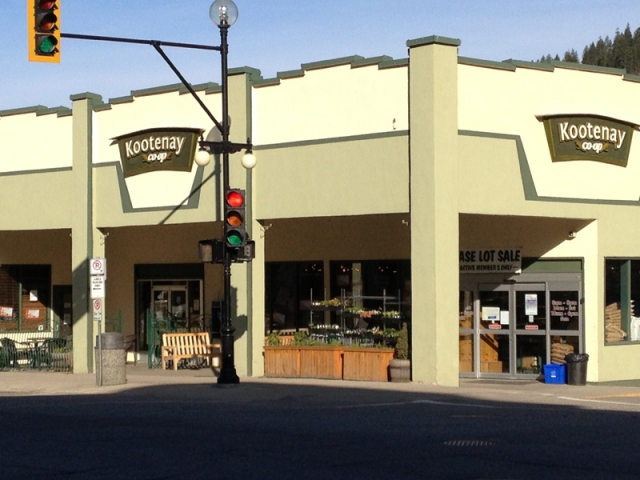UPDATE: CFIA responds to reasons for changing the meaning of 'local'
The Canadian Food Inspection Agency responded to a story in The Nelson Daily Tuesday regarding changes made to the meaning of “local food” in labeling in grocery stores.
Elena Koutsavakis Media Relations for the Canadian Food Inspection Agency apologized for not confirming The Nelson Daily received an email from the federal agency Tuesday afternoon.
Concerns over the changes by the CFIA were raised by Kootenay Co-op in Nelson.
Koutsavakis said the reason for the CFIA implementing this change in policy
is because there are a variety of views on how the term “local” should be defined.
“The CFIA reviewed the approach taken by some of Canada’s key trading partners, such as the United States, and held discussions with its federal, provincial and territorial partners and the Consumer Association Roundtable,” Koutsavakis explained.
As part of the Agency’s labelling modernization initiative, the CFIA will consult industry and consumers on the approach to food labelling, including the claim “local”.
“In the meantime, the CFIA has put in place an interim policy, which will remain in place until the labelling initiative is complete.
Koutsavakis said it’s important for the public and retailers to know that claims such as “local” are voluntary.
“In order to provide consumers with more information, the Agency encourages the addition of qualifiers where the term “local” is used,” Koutsavakis said.
“For example, the name of a city could be added to a label with a “local” claim. The use of the claim “local” remains subject to prohibitions relating to false and misleading claims set out in the Food and Drugs Act as well as the Consumer Packaging and Labelling Act. The CFIA’s interim policy does not override these requirements. It is intended to provide an interpretation of the definition of “local”.”
Kootenay Co-op frowns on Canadian Food Inspection Agency new meaning of ‘local’
The Kootenay Co-op is concerned recent changes by the Canadian Food Inspection Agency over the meaning of “local food” is bad for the consumer.
The change in “local food” definition — from the present 50 kilometer area where food is grown to within that particular province or 50 kilometres from the province — is misleading the consumer said KootenayCo-op marketing manager Jocelyn Carver.
“It’s gone from being a fairly restrictive decision, which is within 50 kilometers of the source . . . in a mountainous region like (West Kootenay) really isn’t practical,” Carver explains.
“What we’re really talking about for us is what is your bio-region, where is the agricultural center of your region and for us is the Creston Valley. As the crow flies within a 100 kilometers are how consumers thinks about “local.”
“I can’t imagine talking to anyone on the street thinking something 2000 kilometers away could honestly be described as local,” Carver adds.
The Kootenay Co-op, based in Nelson, was made aware of the change last week, not through the CFIA, but through the company distributor network.
“From our prospective if we wanted to take advantage of consumer trust in us and call an additional 30 percent of our product which is BC Grown “local” I guess we could take advantage of that consumer trust,” said Carver adding the Kootenay Co-op was not asked for any input into the change.
“But that’s not how we operate.”
The Kootenay Co-op is a source for farmers and producers from Argenta through the Slocan Valley and onto Nakusp to get their product to the consumer.
Carver said Kootenay Co-op also purchases BC Grown product and totally supports the “Buy BC” program.
The CFIA said the new approach is a modernizing of its labeling but says it’s not mandatory.
The Nelson Daily contacted the media relations department at the CFIA for a comment. The operator said a CFIA spokesperson would respond to TND by the end of Tuesday.
No one had replied at press time.
Carver would like to see the change stopped in its tracks and re-thought before any damage is done to consumer confidence.
“I feel if the Canadian Food Inspection Agency is going to define local they should define it in a way that makes good common sense and doesn’t take advantage of the fact that consumers are very busy and are looking for things like local and organic in order to be able to trust the product they’re buying,” Carver said.
The Kootenay Co-op has already sent a protest letter to the CFIA explaining how the change undermines consumer faith in the term “local” and suggestions of how better to define the term.
“We’re awaiting a reply,” Carver said.
























Comments